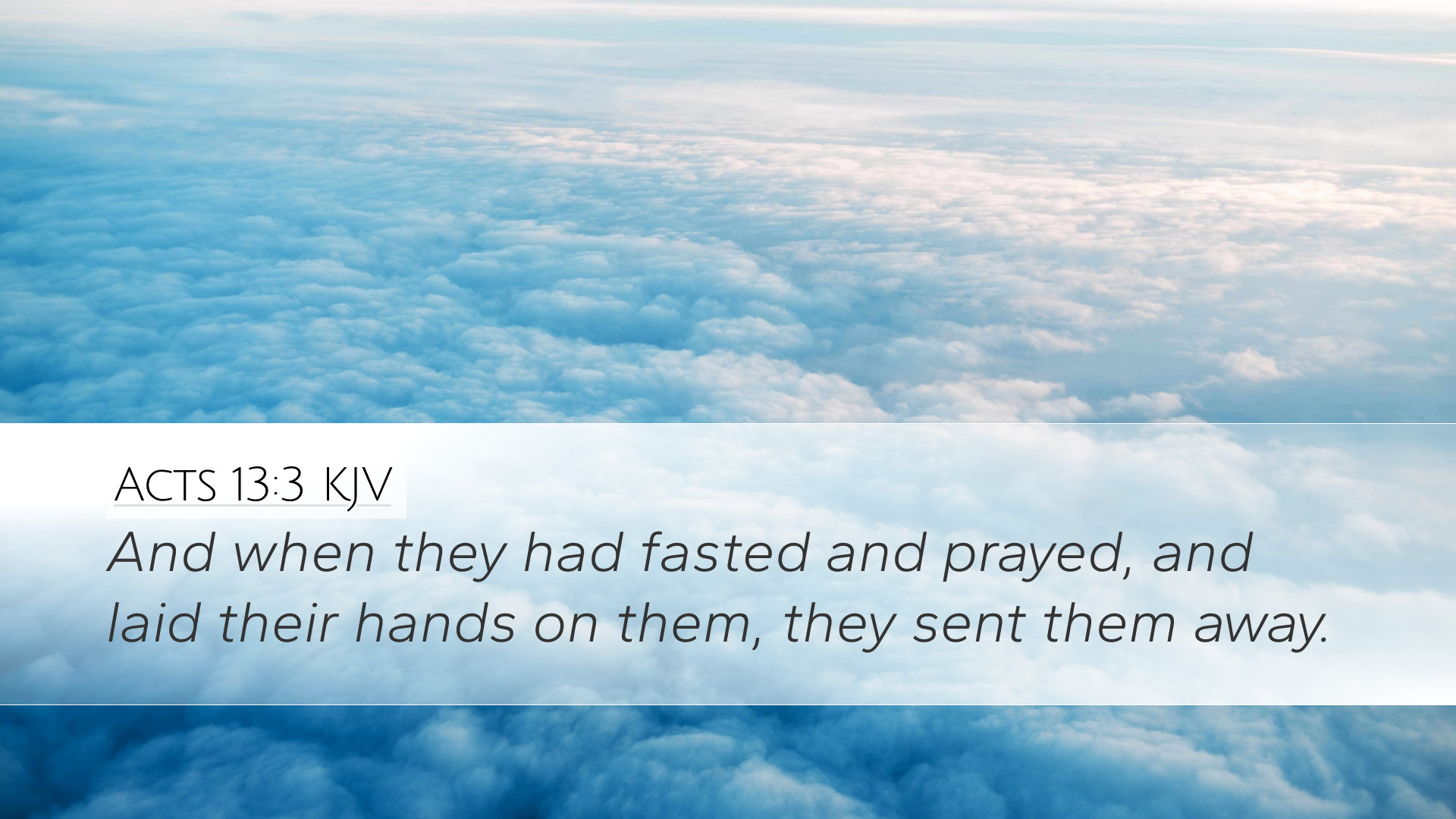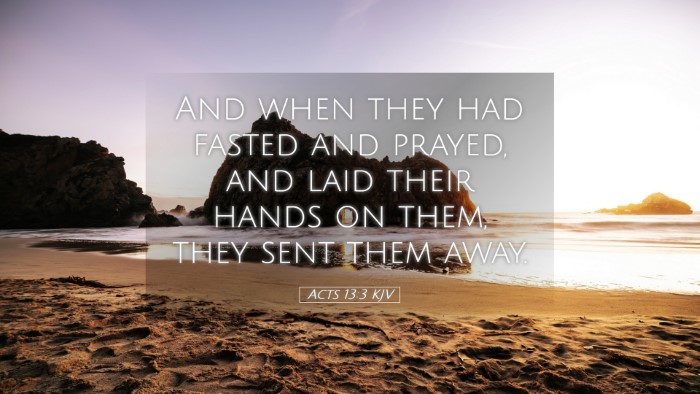Commentary on Acts 13:3
Verse Reference: Acts 13:3
"Then after fasting and praying they laid their hands on them and sent them away." - Acts 13:3 (ESV)
Introduction
This pivotal moment in the early church reflects the importance of community, prayer, and divine calling in the establishment of the early Christian mission. The laying on of hands serves as an essential act of commissioning, demonstrating support and the conferral of spiritual authority upon Barnabas and Saul (later known as Paul). This commentary synthesizes insights from prominent public domain sources, including the works of Matthew Henry, Albert Barnes, and Adam Clarke, to shed light on the implications and applications of this scripture.
Contextual Background
The events of Acts 13 occur in the fledgling church at Antioch, a significant center for early Christianity. The church had already displayed a vibrant life of worship, teaching, and community. This verse is situated in a narrative that highlights the active role of the Holy Spirit in directing the church's missionary efforts.
Henry emphasizes the church's collective nature, where spiritual leadership is not embarked upon by individuals in isolation, but rather through communal discernment and affirmation.
Significance of Fasting and Praying
Fasting and prayer are prominent themes throughout biblical texts, serving as essential disciplines for seeking God’s guidance.
- Spiritual Clarity: Clarke remarks that fasting clarifies the mind and helps believers to focus intensely on divine matters. In this case, the church sought clarity regarding the missions’ direction.
- Collective Seeking: The act of fasting together illustrates the unity within the body of Christ, reflecting a shared commitment to pursuing God's will.
- Preparation for Service: Barnes points out that these acts were preparatory, equipping the church physically and spiritually for the work ahead.
The Laying on of Hands
The laying on of hands signifies several critical theological and practical implications:
- Commissioning: This act represents the official recognition of Barnabas and Saul’s calling. It symbolizes both their selection for mission and the community’s endorsement of their leadership.
- Spiritual Authority: According to Henry, this practice also conveys the transfer of spiritual authority and the blessing necessary for missionary endeavors.
- Connection to the Holy Spirit: The church acts in harmony with the prompting of the Holy Spirit (Acts 13:2), showing that human decisions in ministry are to align with divine calling.
The Mission Context
The mission represented in Acts 13:3 is foundational for the spread of Christianity beyond Jewish communities into the Gentile world. It opens the door to a greater understanding of the Gospel universalization.
- Extension of the Church's Reach: Barnes notes that wild places like Cyprus and later the broader regions reflect the church's intent to go beyond familiar territories.
- Evangelism Model: The pattern established in this commissioning has served as a model for subsequent church missions, demonstrating intentionality, prayerfulness, and community involvement.
Reflection for Church Leaders Today
Acts 13:3 encourages modern church leaders, theologians, and students to reflect on several practices:
- Importance of Prayerful Discernment: Today's ministry should similarly be accompanied by periods of prayer and seeking God’s direction collectively.
- Support and Accountability: The laying on of hands serves as a reminder for leaders to support and hold one another accountable in their missions and callings.
- Recognizing the Holy Spirit’s Leading: Leaders must remain attuned to the Holy Spirit’s voice in guiding decisions about sending and supporting missionaries.
Conclusion
Acts 13:3 serves as a pivotal moment in the narrative of the early church, highlighting the importance of communal discernment through prayer and fasting, the significance of commissioning through the laying on of hands, and the expansive mission of the church in spreading the Gospel. By reflecting on this scripture, pastors, students, theologians, and Bible scholars can gain deep insights into the practices that shape effective ministry and foster a spirit of unity and purpose within the church.


